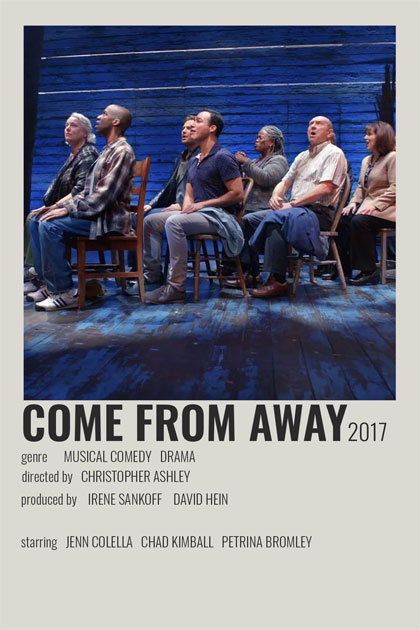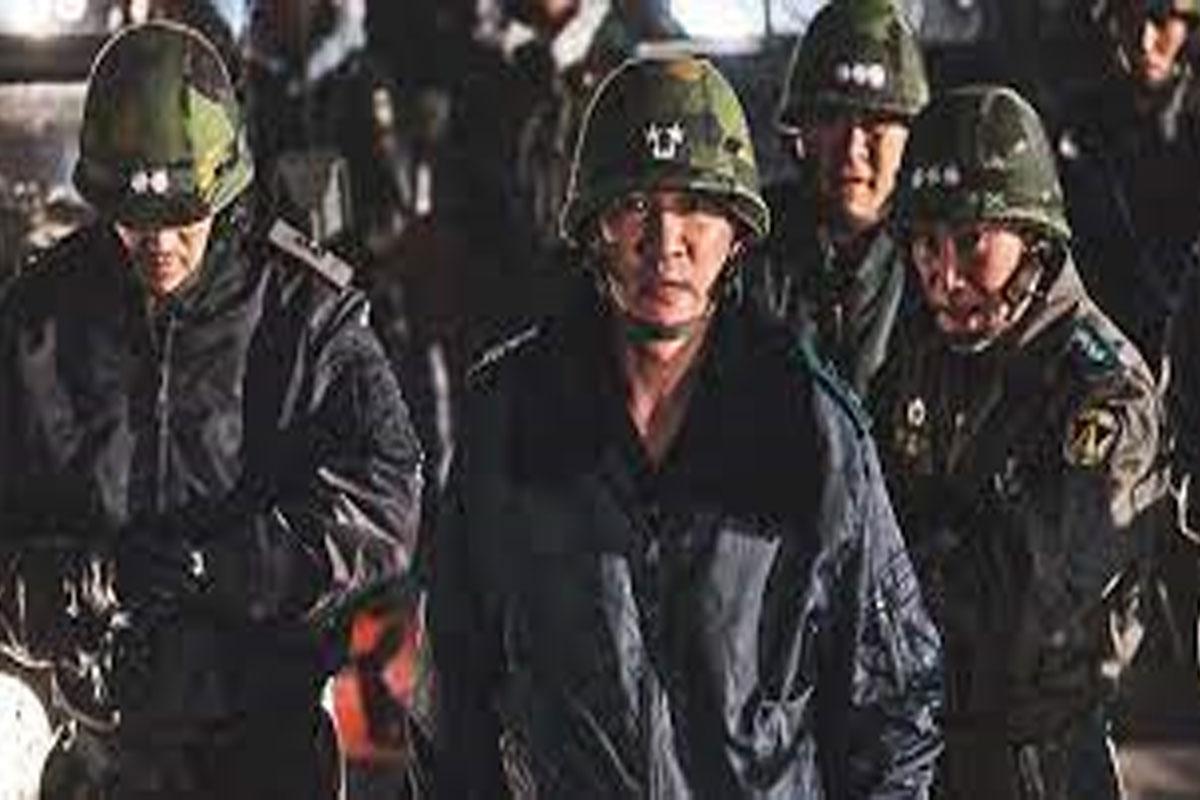
Review of Apple TV uplifting musical, ‘Come From Away’
 ‘COME From Away’ is a Canadian musical based on the experiences of the inhabitants in the small town of Gander in Newfoundland following the September 11, 2001 terrorist attacks. The bombings closed down U.S. air space and a total of 38 planes were diverted to Gander, as it used to have a big international airport used for the refueling of various planes.
‘COME From Away’ is a Canadian musical based on the experiences of the inhabitants in the small town of Gander in Newfoundland following the September 11, 2001 terrorist attacks. The bombings closed down U.S. air space and a total of 38 planes were diverted to Gander, as it used to have a big international airport used for the refueling of various planes.
About 7,000 passengers are expected to deplane in Gander and stay there, so its citizens quickly act and prepare to take in their incoming visitors: to lodge them and feed them and even give them a change of clothes.
The musical is pure theatre, as seen in this filmed live version on Apple TV. It has 12 actors assuming different roles that switch from being citizens of the islands to their visitors, passengers who “Come From Away” straying unexpectedly to their small town not to their own liking.
The most amazing thing about the show is how the writers skillfully integrated all the various strands of stories they culled from real life, both from the stories of the townspeople and the visitors themselves. to be a warm and uplifting musical.
It starts at a small cafe in Gander in the morning of 9/11 where some of the folks gathered, describing their simple life, then they learn of the terrorist bombings that will change their lives forever. Soon, they are informed that incoming flights diverted from the U.S. are all instructed to land in Gander.
The folks include Gander’s mayor, a local policeman, a caring teacher, a new TV reporter on the first day of her job, and other people who quickly act to prepare for the arrival of their visitors who are called “come from aways” in Newfoundland slang.
The show is set on a revolving stage and the play expertly assign the 12 ensemble players various roles as they gather emergency supplies and also, at the same time, portray the understandably anxious and frightened passengers in the planes who are not officially informed about the bombings and wandering what exactly is happening to them.
They get bored waiting inside the plane, complaining about their being needlessly grounded and trying to connect with relatives in the outside world through cellphones. Later on, they were allowed to deplane and we meet some of them more intimately and get to know their individual stories.
There is Hannah, the mother of a fireman in New York wondering whatever happened to her son, and Beulah, the local teacher who tries to comfort her. There’s a divorced Texan woman, Diane, who finds romance in Nick, a friendly British guy. And there’s also a zany gay couple both named Kevin.
These are all based on real people and in the end credits of the movie, they are shown on screen with the actors who played them in the play. But it’s not all bright and cheery since the passengers come from different parts of the world and belong to different races. Some of them don’t even speak English.
A stranded African passenger and his family are understandably afraid of racism. A Middle Eastern Muslim passenger is treated with prejudice and distrust. He gets stripped and thoroughly searched to make sure he’s not one of the terrorists.
But there is also a moving production number where they all sing a Christian song (“St. Francis’ Make Me a Channel of Your Peace”) and people of all creeds and persuasions get to pray together in their own manner of worship.
Animals who are also passengers inside the planes are all given proper attention, including a pregnant monkey, by a worker who prevents cruelty to animals. The transient visitors are initially surprised by the warm hospitality of the Ganderians but they eventually bond with them and some passengers are even made honorary sons of Newfoundland in the local bar.
The U.S. airspace eventually reopens and some of their lives have changed forever. One couple see their long term romance break up because of the stress they experienced during their stay in Gander. But most passengers are happy to exchange their personal stories about the compassion and magnanimity they just encountered.
The Gander folks return back to normal but they sing of how differently everything now feels. The show ends with a reunion in Gander of the passengers and the townspeople after ten years. They tell us what has happened to them since then and celebrate the lifelong friendships they made with each other which transcended cultural differences.
This is seen in the finale number where they sing: ‘We honor what was lost, but we also commemorate what we found.’ This is truly an inspiring show and it moves very briskly at only about an hour and 45 minutes, as superbly written by Canadians Irene Sankoff and David Hein.
All plays ask us to suspend our disbelief and it is so easy to do that here because the actors in the ensemble are all very versatile. They are just brimming with so much palpable energy and enthusiasm as they sing and dance true to life stories of both the townsfolk and the passengers and crew members.
In this era when distrust and discord are rampant, this musical deserves to be seen by everyone for its message about the conviviality and the kindness of strangers. The songs are contagious and the toe-tapping live music is provided by a small band of six musicians present right there on the stage along with the actors.
This feel-good play was filmed with an audience, unlike “Diana” that was filmed with an empty theatre. There have been many films and TV shows made about the unthinkable 9/11 event, but who would have thought that this marvelous crowd-pleasing piece of theatre that salutes kindness and generosity would be one of them?























